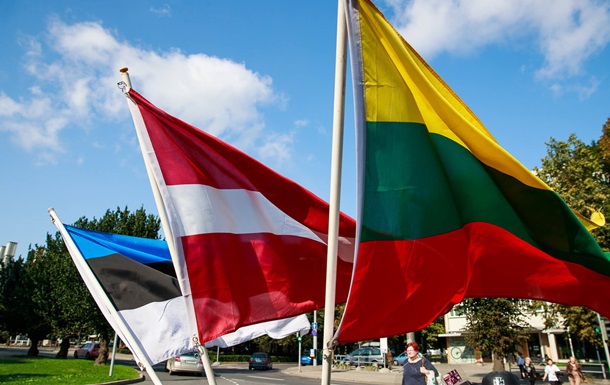Baltics Warn: “Russian Occupation Is Never Temporary”

On August 13, 2025, the foreign ministers of Lithuania,
Latvia, and Estonia published a joint op-ed in The Financial Times urging the West to reject any territorial
concessions to Russia in exchange for ending the war in Ukraine.
The diplomats reminded readers that in their countries’
history, the “temporary” occupation by the USSR in 1940 turned into half a
century of repression, deportations, and forced Russification.
“Even with the non-recognition of annexation by the United States and Europe, it did not save our people from tragedy. That is why we know: Russian occupation is never temporary”, the statement reads.
In 1940, the USSR, acting in alliance with Nazi Germany
under the Molotov–Ribbentrop Pact, seized Lithuania, Latvia, and Estonia. The
West formally did not recognize this annexation, but decades of violence and
suppression of national identity became the reality for millions of people.
The Baltic ministers draw a direct parallel with Ukraine, where, in their words, “the occupation is already accompanied by torture, propaganda, abductions, and the forced integration of children”.
It is estimated that around 6 million Ukrainians are under Russian control. In the occupied
territories, there are widespread reports of repression. Abducted children are
being integrated into the Russian educational and cultural system. In addition,
propaganda and censorship have replaced free media.
The stories of Bucha, Irpin, and Mariupol, according to the
diplomats, are “modern analogues” of Stalin’s crimes.
The Baltic ministers call for unity of the transatlantic
community in supporting Ukraine, maximum military and economic assistance, and
investments in Europe’s long-term security.
“Strength is the only language the aggressor understands. Any concessions will only lead to new wars”.
Historically, the Baltic states have viewed Russia as an
existential threat. Their 20th-century experience has shaped an extremely realistic
– and often pessimistic – view of international diplomacy with Moscow.
The Financial Times op-ed is aimed primarily at Western elites, where voices advocating “peace through compromise” are becoming increasingly loud. Lithuania, Latvia, and Estonia, as NATO’s front-line states, fear that allowing territorial concessions in Ukraine will open the way for Russia to test the resilience of NATO’s Article 5. For the Baltics, the war in Ukraine is not a local conflict but a battle for the entire architecture of European security.
14.08.2025 06:06
 Latest news
Latest news Latest news
Latest newsRussia MFA: Russian border guards’ presence should be considered when opening communications via Armenia’s Syunik
13.Aug.2025
Ararat Mirzoyan had a phone call with Jeyhun Bayramov
12.Aug.2025
TRIPP to Peace: Declaration Reshapes Caucasus Geopolitics
09.Aug.2025
Trump, Aliyev, and Pashinyan Hold Historic Meeting: U.S. Returns to the Caucasus
08.Aug.2025
Witkoff in Moscow, Trump Proposes Summit with Zelensky: A Turn Toward Peace?
07.Aug.2025
Washington Prepares Meeting of Armenian and Azerbaijani Leaders: A Peace Breakthrough Amidst New U.S. Strategy
06.Aug.2025
Armenia and the United States to Hold Joint Military Exercises
05.Aug.2025
ChatGPT said: What is Happening in Georgia? Expert Analysis by Giorgi Mchedlishvili
05.Aug.2025
Armenia Moves Toward the EU: EUMA Mission Extended and Accession Process Launched
04.Aug.2025
Azerbaijan to Begin Gas Exports to Syria via Turkey: A New Phase in Regional Energy Cooperation
03.Aug.2025

 20 Aug 2025
20 Aug 2025








